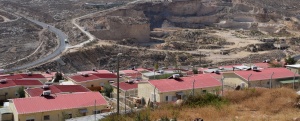Press Release
On 18 October 2019, the Committee on Economic, Social and Cultural Rights (the “Committee”) issued its Concluding Observations following the review of Israel.[1] The Committee’s report stressed the fact that Israel, as Occupying Power, is not complying with its obligations under international human rights law, specifically under the International Covenant on Economic, Social and Cultural Rights (“ICESCR”) and international humanitarian law in the Occupied Palestinian Territory (OPT) and, unprecedentedly, in the occupied Syrian Golan. The Concluding Observations further incorporated recommendations made by Al-Haq in a joint parallel report submitted in September 2019 with Al-Marsad Arab Human Rights Centre in Golan Heights and Cornell University, as well as from the civil society meeting with the Committee and the follow up written submission in October 2019.
Throughout its prolonged military occupation, Israel, the Occupying Power, has used different methods to expand its control over occupied territory, including by exploiting renewable and non-renewable natural resources in the OPT and the occupied Syrian Golan. In order to achieve its aim, Israel has, inter alia, confiscated land and issued licenses to Israeli and multinational companies, allowing them to unlawfully exploit these resources for the benefit of Israel’s economy and its settlement enterprise, while impeding the rights to self-determination and sovereignty over and access to natural resources for the occupied populations. In a joint report submitted to the Committee in September 2019, Al-Haq and Al-Marsad highlighted this and focused on the systematic and manifestly unlawful exploitation of natural resources in the OPT and occupied Syrian Golan. It emphasized how businesses can interfere and contribute to violations of social, economic and cultural rights, thereby failing to respect human rights.[2]
In accordance with the joint report, the Committee expressed its concern regarding the licences Israel is issuing for businesses to operate in the occupied territories and how it violates the rights of the Palestinian and Syrian communities therein. The Committee also raised concern about “the lack of information on the measures put in place by the State party to ensure that the companies do not infringe human rights while operating in the occupied territories” by Israel. The Committee made a recommendation to the State of Israel to “immediately cease to issue licences for the exploitation of natural resources in the occupied territories and that it regulate the operations and activities of Israeli and multinational companies operating in the occupied territories in order to ensure their compliance with human rights standards.” The Committee further referred to general comment No. 24 (2017) on State obligations under the ICESCR in the context of business activities.[3]
In addition, the Committee urged Israel to immediately halt and reverse all settlement policies and developments in the West Bank, including East Jerusalem, and the occupied Syrian Golan and rescind the delegated powers granted to organizations facilitating settlements such as the World Zionist Organization and the Jewish National Fund, and discontinue support to these organizations.[4]
Moreover, the Committee expressed its deep concern regarding “Basic Law: Israel – the Nation State of the Jewish People”, highlighting its discriminatory effects and immediate repercussions on the enjoyment of economic, social and cultural rights in occupied territories “which have already significantly been hampered by the settlement policy”. To this end, the Committee urged Israel to review the Law “with a view to bringing it into line with the Covenant or to repealing it and to step up its efforts to eliminate discrimination faced by non-Jews in their enjoyment of Covenant rights, particularly the rights of self-determination and non-discrimination and to cultural rights”.[5]
The Committee also found that economic, social and cultural rights are being severely impacted by the Israeli-imposed closure and blockade on the Gaza Strip.[6] Consequently, the Committee urged the State of Israel to immediately lift the closure and blockade on the Gaza Strip; to facilitate the free movement of Palestinians within the OPT; and to halt and reverse any measures restricting the free movement of civilians and goods into and within the Gaza Strip.[7]
Finally, the Committee’s Concluding Observations addressed Israel’s practice of punitive demolitions of homes and private property against Palestinians. To this end, the Committee urged Israel to “immediately cease the practice of collectively demolishing houses and private property as a form of punishment and to ensure that victims of such practice are provided with full and effective reparations, including restitution of the affected properties”.[8]
To access the concluding observations on the fourth periodic report of Israel (2019), click here.
ENDS
[1] UN Committee on Economic, Social and Cultural Rights (CESCR), Concluding observations on the fourth periodic report of Israel, 18 October 2019, E/C.12/ISR/CO/4.
[2] See Al-Haq, ‘Joint Submission to UN Committee on Economic, Social and Cultural Rights ahead of Israel’s Fourth Periodic Review’ (11 September 2019) available at: http://www.alhaq.org/advocacy/15138.html
[3] UN CESCR (n 1) paras. 14-5.
[4] Ibid., para. 11.
[5] Ibid., para 16-17.
[6] Ibid., paras. 10, 40 and 70.
[7] Ibid., paras. 10, 40 and 70.
[8] Ibid., paras. 52-53.


